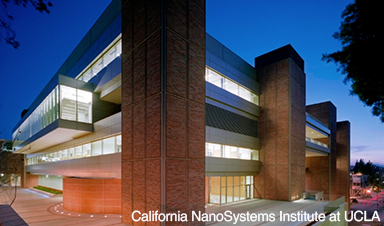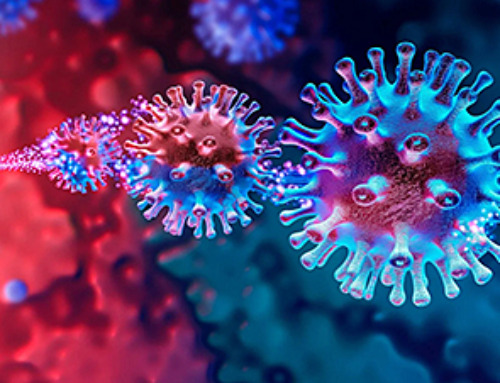For about one in 13 children in the U.S., normally harmless foodstuffs such as milk, eggs and peanuts can send the body’s natural defenses into overdrive.
Symptoms of food allergies can vary widely, but at worst, a systemwide allergic response can lead to anaphylaxis, a life-threatening condition characterized by a sudden drop in blood pressure and difficulty breathing.
Although there are now some preventive measures for food-induced anaphylaxis, there are not yet any long-lasting solutions—treatments capable of locking the immune system into a state of tolerance, so that it doesn’t respond to allergens.
Now, a UCLA research team has developed a possible way to impart long-term relief from allergies by inducing an active state of immune tolerance.
The technology uses a nanoparticle—a particle so small that it’s measured on the scale of billionths of a meter—to deliver proteins to specific cells in the liver. Those proteins may trigger an allergic response in other organs in the body, but in the liver, they cause the targeted cells to activate a tolerant immune response that switches the allergic response off.
A report on the research, published in ACS Nano, indicates that the platform is effective in preventing allergic reactions to an egg protein when ingested or inhaled. The UCLA researchers also showed that delivering a single piece of a protein that triggers allergies is sufficient to ameliorate the allergic reaction.
“Huge numbers of people suffer from food allergies, amounting to billions of dollars in annual health care costs,” said co-corresponding author Dr. André Nel, director of the University of California’s Center for Environmental Implications of Nanotechnology, or CEIN, and director of research at the California NanoSystems Institute at UCLA. “Normally, asthma and anaphylaxis are treated with an EpiPen syringe as well as anti-inflammatory and immune-suppressive drugs that only provide transient relief. For the problem to go away long-term, we’re looking at the liver to reprogram the immune system to an actively sustained state of nonresponsiveness.”
The liver is an immune-privileged organ, meaning that it is programmed not to respond to foreign proteins called antigens, which can cause allergic or anaphylactic responses elsewhere in the body. The platform developed by Nel and his colleagues spurs the liver to produce regulatory T cells, cells in the immune system that can go everywhere in the body, to calm allergic responses to food allergens.
Image Credit: University of California, Los Angeles
Post by Amanda Scott, NA CEO. Follow her on twitter @tantriclens
Thanks to Heinz V. Hoenen. Follow him on twitter: @HeinzVHoenen
News
Molecular Manufacturing: The Future of Nanomedicine – New book from Frank Boehm
This book explores the revolutionary potential of atomically precise manufacturing technologies to transform global healthcare, as well as practically every other sector across society. This forward-thinking volume examines how envisaged Factory@Home systems might enable the cost-effective [...]
New Book! NanoMedical Brain/Cloud Interface – Explorations and Implications
New book from Frank Boehm, NanoappsMedical Inc Founder: This book explores the future hypothetical possibility that the cerebral cortex of the human brain might be seamlessly, safely, and securely connected with the Cloud via [...]
Global Health Care Equivalency in the Age of Nanotechnology, Nanomedicine and Artificial Intelligence
A new book by Frank Boehm, NanoappsMedical Inc. Founder. This groundbreaking volume explores the vision of a Global Health Care Equivalency (GHCE) system powered by artificial intelligence and quantum computing technologies, operating on secure [...]
Miller School Researchers Pioneer Nanovanilloid-Based Brain Cooling for Traumatic Injury
A multidisciplinary team at the University of Miami Miller School of Medicine has developed a breakthrough nanodrug platform that may prove beneficial for rapid, targeted therapeutic hypothermia after traumatic brain injury (TBI). Their work, published in ACS [...]
COVID-19 still claims more than 100,000 US lives each year
Centers for Disease Control and Prevention researchers report national estimates of 43.6 million COVID-19-associated illnesses and 101,300 deaths in the US during October 2022 to September 2023, plus 33.0 million illnesses and 100,800 deaths [...]
Nanomedicine in 2026: Experts Predict the Year Ahead
Progress in nanomedicine is almost as fast as the science is small. Over the last year, we've seen an abundance of headlines covering medical R&D at the nanoscale: polymer-coated nanoparticles targeting ovarian cancer, Albumin recruiting nanoparticles for [...]
Lipid nanoparticles could unlock access for millions of autoimmune patients
Capstan Therapeutics scientists demonstrate that lipid nanoparticles can engineer CAR T cells within the body without laboratory cell manufacturing and ex vivo expansion. The method using targeted lipid nanoparticles (tLNPs) is designed to deliver [...]
The Brain’s Strange Way of Computing Could Explain Consciousness
Consciousness may emerge not from code, but from the way living brains physically compute. Discussions about consciousness often stall between two deeply rooted viewpoints. One is computational functionalism, which holds that cognition can be [...]
First breathing ‘lung-on-chip’ developed using genetically identical cells
Researchers at the Francis Crick Institute and AlveoliX have developed the first human lung-on-chip model using stem cells taken from only one person. These chips simulate breathing motions and lung disease in an individual, [...]
Cell Membranes May Act Like Tiny Power Generators
Living cells may generate electricity through the natural motion of their membranes. These fast electrical signals could play a role in how cells communicate and sense their surroundings. Scientists have proposed a new theoretical [...]
This Viral RNA Structure Could Lead to a Universal Antiviral Drug
Researchers identify a shared RNA-protein interaction that could lead to broad-spectrum antiviral treatments for enteroviruses. A new study from the University of Maryland, Baltimore County (UMBC), published in Nature Communications, explains how enteroviruses begin reproducing [...]
New study suggests a way to rejuvenate the immune system
Stimulating the liver to produce some of the signals of the thymus can reverse age-related declines in T-cell populations and enhance response to vaccination. As people age, their immune system function declines. T cell [...]
Nerve Damage Can Disrupt Immunity Across the Entire Body
A single nerve injury can quietly reshape the immune system across the entire body. Preclinical research from McGill University suggests that nerve injuries may lead to long-lasting changes in the immune system, and these [...]
Fake Science Is Growing Faster Than Legitimate Research, New Study Warns
New research reveals organized networks linking paper mills, intermediaries, and compromised academic journals Organized scientific fraud is becoming increasingly common, ranging from fabricated research to the buying and selling of authorship and citations, according [...]
Scientists Unlock a New Way to Hear the Brain’s Hidden Language
Scientists can finally hear the brain’s quietest messages—unlocking the hidden code behind how neurons think, decide, and remember. Scientists have created a new protein that can capture the incoming chemical signals received by brain [...]
Does being infected or vaccinated first influence COVID-19 immunity?
A new study analyzing the immune response to COVID-19 in a Catalan cohort of health workers sheds light on an important question: does it matter whether a person was first infected or first vaccinated? [...]





















